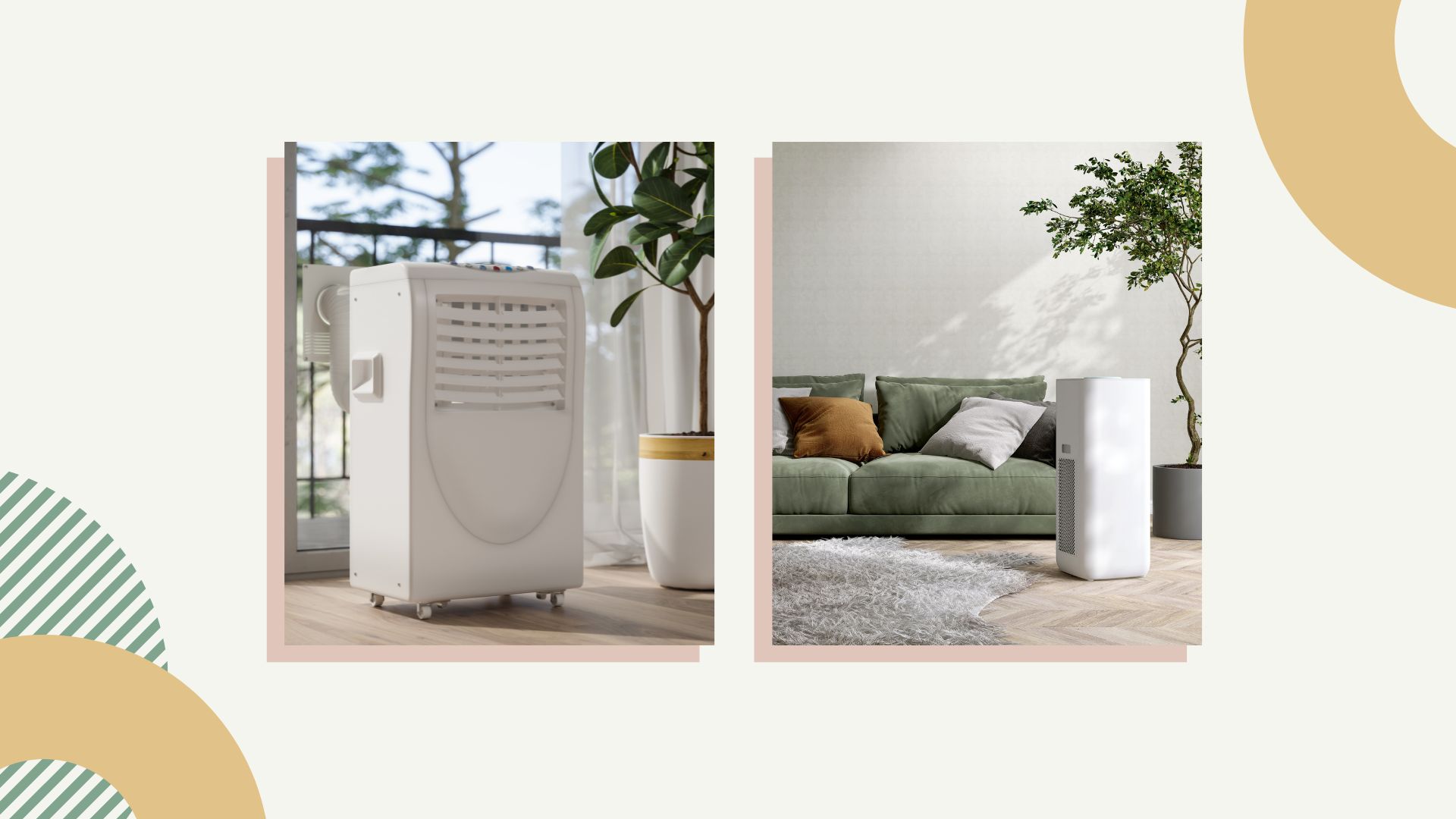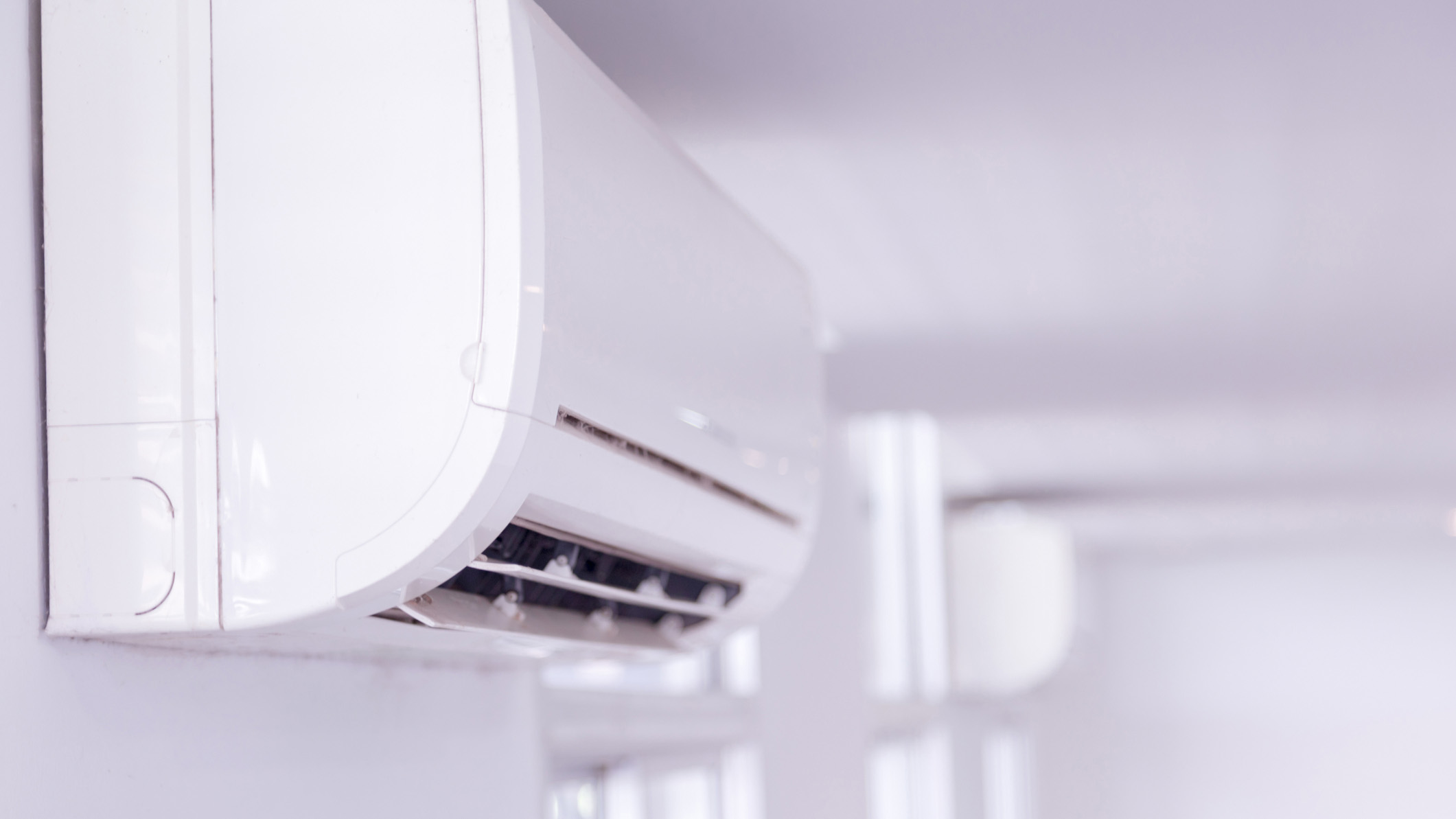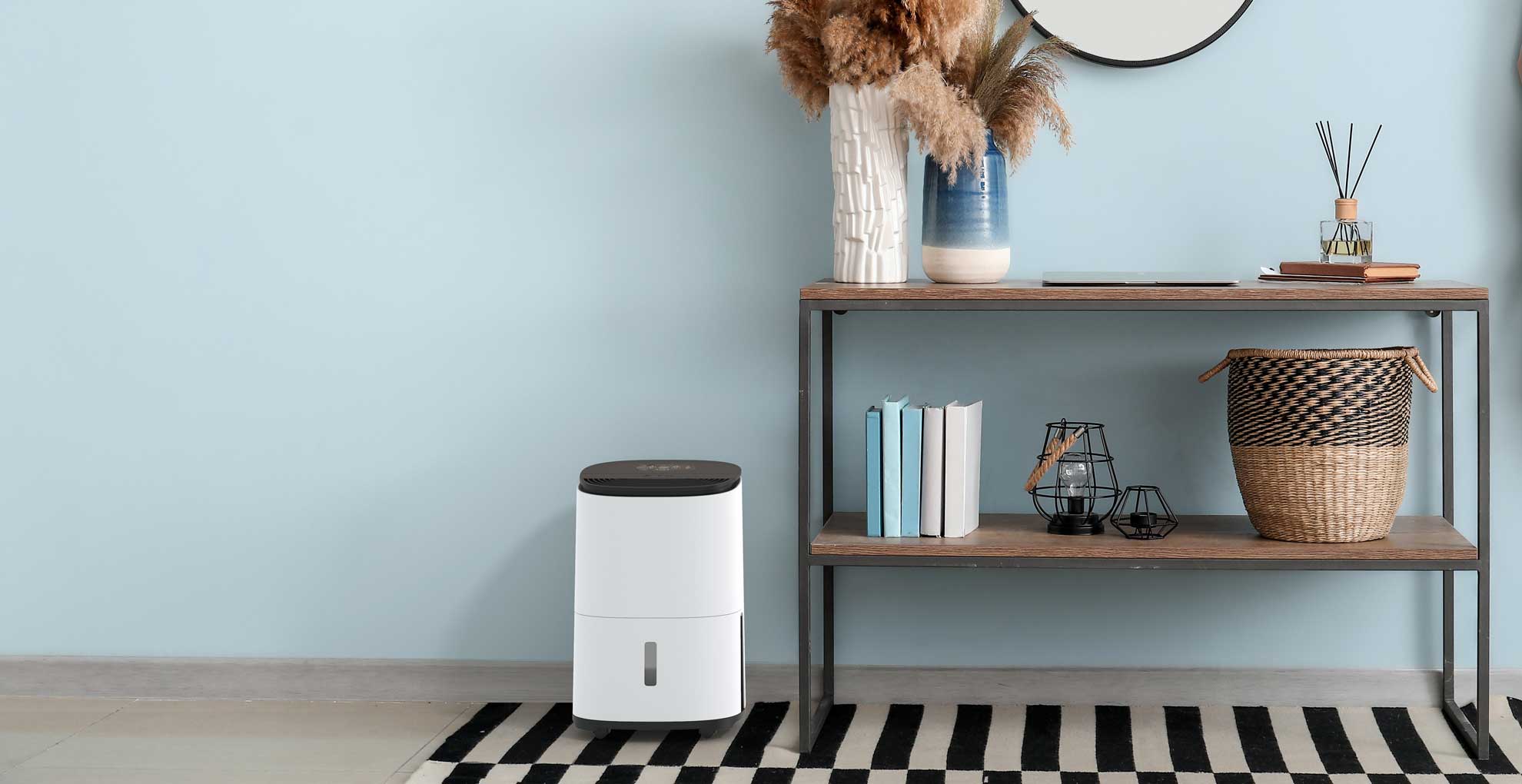Air conditioner vs dehumidifier: What is the difference and which is better for staying cool?
Trying to keep cool in the hot weather but unsure which system to use? We compare air conditioners vs dehumidifiers to help you choose the right machine for your home


As temperatures rise during the summer months, the demand for effective gadgets to keep cool in the home rises. But which is the right one to invest in? Air conditioner vs dehumidifier?
It may come as a surprise that it is not only the heat that is the cause of your discomfort. The increased humidity in the air – or in other words the amount of water content in the atmosphere – can prevent you from sweating, which in turn causes your body to overheat. When the air has low humidity, sweat is able to evaporate from your skin easily, naturally helping to keep your body cool.
But humid conditions can create more serious problems than just a bad night’s sleep. Excess moisture in the home can be the culprit behind unsightly mold appearing on walls, wallpaper may peel off in damp conditions and condensation can form on windows. At high levels, it can also contribute to serious health and respiratory issues such as asthma.
Thankfully air conditioners and the best dehumidifiers can help provide some respite and make a big difference to the comfort of living in your home, but which is the right one to invest in for you? We ask the experts for their advice.
Air condition vs Dehumidifer: what is the difference?
While both systems work to help remove moisture from the air and make the atmosphere more dry, an air conditioning system’s main use is to expel hot air and replace it with cold air. A dehumidifier’s main function is to remove humidity - the excess water droplets that are found in the atmosphere, and other small particles floating around in the air.
“Traditional dehumidifiers and air conditioners both actually use the same cycle as a fridge or freezer, they all create a cold surface onto which moisture will condense," explains Nicki Bourlet, home appliance expert at Currys.
"In a dehumidifier, the condensed water is caught in a container or drained via a tube, in an air conditioner it is vented or drained away from a small container or tray inside.”
Sign up to our free daily email for the latest royal and entertainment news, interesting opinion, expert advice on styling and beauty trends, and no-nonsense guides to the health and wellness questions you want answered.
Is a dehumidifier better than an air conditioner?
This totally depends on what you are looking to achieve and possibly even where you live, similar to when comparing dehumidifiers vs humidifiers.
According to climate control specialist, Ceilo. “If you are living in a hot and humid environment, you would want to go for an air conditioner, which achieves both cooling and a reduction in humidity at the same time. If you live near the sea and in a moderate climate, then a dehumidifier makes more sense. Some people prefer a dry room climate, while for others, a slightly humid environment is preferable.”
How does a dehumidifier work? A dehumidifier will remove the excess moisture from the atmosphere without causing the temperature to drop significantly. An air conditioner will reduce the humidity and lower the temperature significantly. But a dehumidifier does have extra tricks up its sleeve, making it an appealing prospect for allergy sufferers.
“A dehumidifier only takes water out of the air, before returning the drier air to the room," says Nicki. "This drier air makes it easier to dry clothes and reduce mold and mildew growth."
"Dehumidifiers can be quieter than an air conditioner and also take out smaller particles using a HEPA filter, that could otherwise trigger an allergic reaction to dust or pollen. Dehumidifiers also have carbon filters to help remove smells from the air”
Can a dehumidifier cool a room?
Technically, no. A dehumidifier can’t lower the temperature or help to cool down a room without ac. However, it can make you feel like the room is a whole lot cooler by taking away the moisture in the air.
“By making the air drier and by circulating the air, our body’s perspiration will evaporate better so we should feel more comfortable even if the temperature is not reduced,” says Nicki Bourlet. It is all about the increased water content in the air preventing your body from sweating to cool down. The more arid the atmosphere in a room is, the cooler you will feel.

Is it cheaper to run a dehumidifier or an air conditioner?
On the whole air conditioners consume more energy than dehumidifiers, making them more costly to run. “This is because they not only dry but also cool the air,” says Nicki. “When they are used as a dehumidifier only, air conditioners are limited to operate in warmer temperatures. Overall, it is usually cheaper to run a dehumidifier.”
Also if you look at the long-term gains, it may work out as a cost-saving exercise to install a dehumidifier over an air conditioning unit. Left untreated, damp air can seep into the fabric of the home and cause all kinds of expensive structural problems, as well as severely affecting the health and well-being of those living in humid conditions.
You will know if you have a problem when mold starts to appear around windows, on tiles, and even on soft furnishings. Condensation on your windows in the morning and a musty smell are also telltale signs of a damp problem.
"Not treating it is saving up problems for the future, so the sooner you can start to make a difference, the better it is," says Chris Michael from humidifier and air conditioning experts Meaco. Using a dehumidifier will make the air drier, the air fresher, will save money on your heating, and will help you to dry your laundry.”
Do you need a dehumidifier if you have an air conditioner?
If your main priority of use is to dry the air then there is no reason to clutter your home with both a dehumidifier and an air conditioning machine, says Nicki. However, while an air conditioner can cool the air effectively during the hotter months, there are some seriously attractive additional benefits to having a dehumidifier that could improve your home life, particularly if you are an allergy sufferer.
“If you are looking to help purify the air and remove smells and particles, then having a dehumidifier too could be useful,” says Nicki. Another reason to purchase a dehumidifier alongside an air conditioner, other than getting rid of the smells of last night's takeaway, is if you know you have damp issues and are living in a cooler climate. An air conditioner is only effective in temperatures of 17 C and above. And as we have discovered damp air does not make for a happy house.
If your main priority is to improve the air quality in your home you might want to seek the help of one of the best air purifiers instead because dehumidifiers vs air purifiers have different functions too.

Can I use my air conditioner as a dehumidifier?
During the warm summer months, an air conditioning unit should run perfectly well as a replacement for a dehumidifier. “An air conditioner can also remove water from the air,” Nicki explains. “It can have a dehumidifier mode to remove humidity into a small container to be drained out while leaving the heat in the room. In cooling mode, an air conditioner can both dry the air and remove the heat through a hose to the outdoors. The lower temperature and drier air make for a more comfortable living space.”
However, as soon as the seasons change and the temperature turns cooler and instead you're looking for ways to make your home cozy the air conditioning unit becomes less effective and the dehumidifier comes into its own.
“If you plan to dry air to save energy and money, for example drying clothes indoors during the winter instead of using a vented tumble drier, a dehumidifier would be a better choice,” she says.
Chris suggests the best time of year to choose a dehumidifier over an air conditioning unit would be during the winter. “During the colder months of the year, when windows and doors are less likely to be open, and showers, cooking, and drying laundry indoors create additional moisture and you may notice more moisture issues. Many people can manage them during the summer, (by opening windows and doors) but they need to use a dehumidifier to help during the winter.”

Danielle Lawler is an editor, journalist and copywriter of over twenty years covering home stories, lifestyle and entertainment across national newspapers, magazines, online and in trade press.
Aside from women & home, most recently her work has appeared in Tatler Magazine, The Telegraph, Homes and Gardens and Royal Ascot Magazine.
She can often been found writing 'at home' stories with influential business people and celebrities, covering cultural events and writing about new lifestyle trends in interiors, beauty and travel.